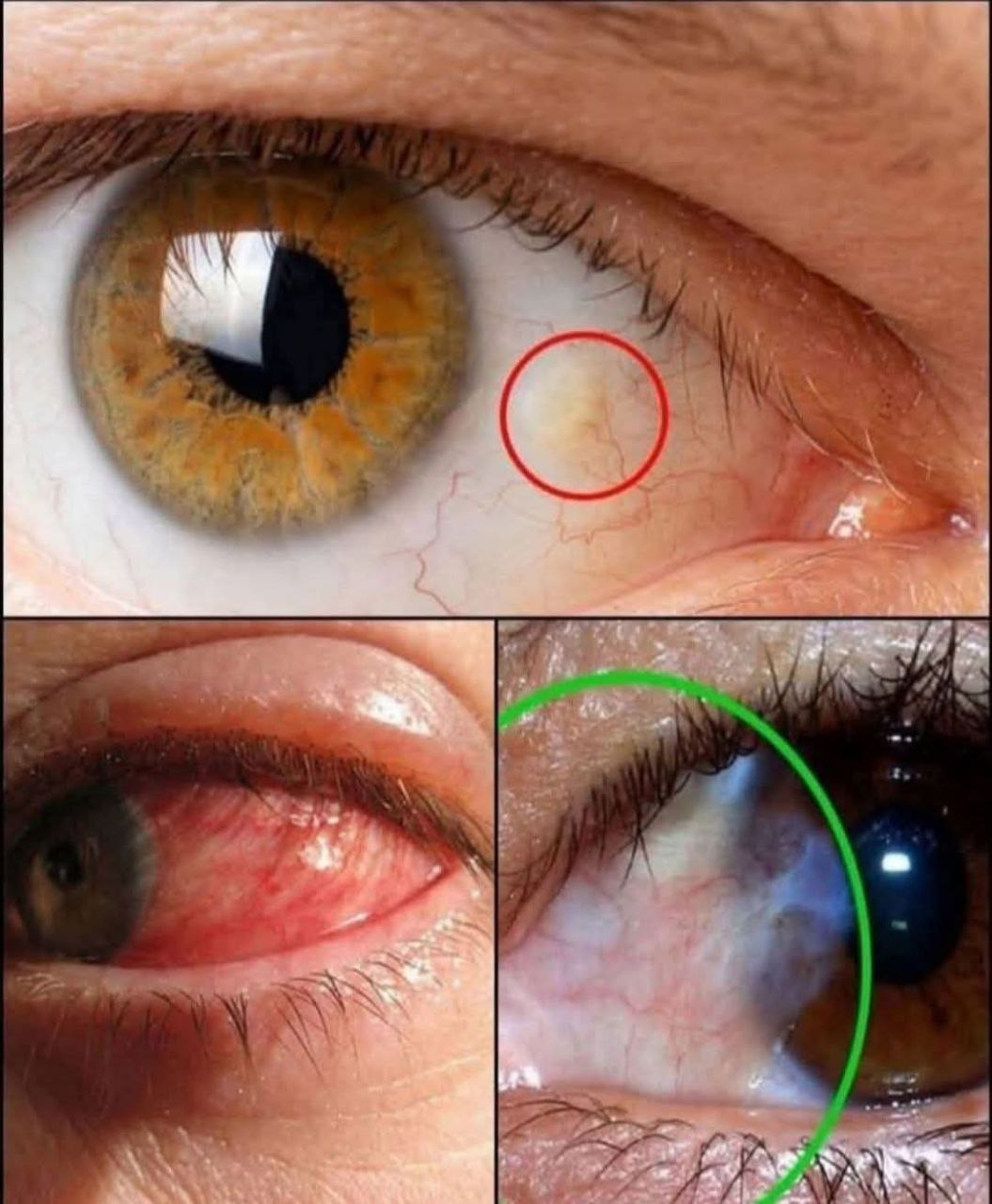Definitely! Your eyes can reveal a lot about your overall health, and there are several symptoms that might indicate underlying health issues. Here are some examples:

Yellowing of the Eyes: If the whites of your eyes (sclera) turn yellow, it could be a sign of jaundice, which may indicate liver problems, bile duct issues, or hemolysis (breakdown of red blood cells). Red or Bloodshot Eyes: This can be caused by a variety of factors, including allergies, irritation, or infections like conjunctivitis. It can also indicate more serious conditions like glaucoma. Dry Eyes: Persistent dryness can be a symptom of conditions like Sjögren’s syndrome or can be caused by environmental factors, prolonged screen time, or certain medications. Puffy Eyes or Dark Circles: These can be linked to lack of sleep, allergies, or fluid retention. In some cases, they may indicate more serious health issues like kidney problems. Changes in Vision: Sudden changes in vision, such as blurriness, double vision, or loss of vision, can be a sign of serious conditions like diabetes, hypertension, or retinal detachment. Floaters and Flashing Lights: Seeing floaters or flashes of light can indicate changes in the vitreous gel of the eye or more serious issues like retinal detachment. Eye Pain: Pain in the eye can be a sign of various conditions, including infections, glaucoma, or even migraines. Color Changes: If your iris changes color, it could indicate a condition called Wilson’s disease, which affects copper metabolism.
If you notice any of these symptoms, it’s always a good idea to consult with a healthcare professional to determine the cause and get appropriate treatment. Your eyes can be a window to your health, so keeping an eye on them is important!
To secure and protect your eyes, here are some effective tips:
Wear Sunglasses: Protect your eyes from harmful UV rays by wearing sunglasses that block 100% of UVA and UVB rays when you’re outdoors. Use Proper Lighting: Ensure that your workspace is well-lit to reduce eye strain. Avoid glare from screens by using appropriate lighting and positioning. Follow the 20-20-20 Rule: To prevent eye strain from screens, every 20 minutes, look at something 20 feet away for at least 20 seconds. This helps relax your eye muscles. Maintain a Healthy Diet: Eat foods rich in vitamins C and E, omega-3 fatty acids, and zinc. Leafy greens, fish, nuts, and citrus fruits can benefit eye health. Stay Hydrated: Drink plenty of water to keep your body and eyes hydrated. Dehydration can lead to dry eyes. Limit Screen Time: Take regular breaks from screens and try to reduce overall screen time when possible, especially before bed. Use Protective Eyewear: If you’re working with hazardous materials or playing sports, wear appropriate protective eyewear to prevent injuries. Get Regular Eye Exams: Regular check-ups with an eye care professional can help catch any potential issues early and keep your prescription updated if you wear glasses or contacts. Avoid Rubbing Your Eyes: This can irritate your eyes and potentially introduce bacteria, leading to infections. Practice Good Hygiene: If you wear contact lenses, ensure you follow proper hygiene practices to prevent infections.
By following these tips, you can help secure your eye health and maintain good vision.

